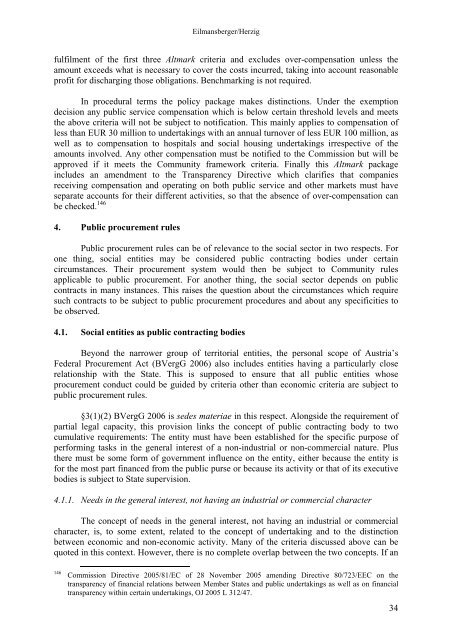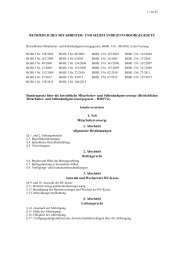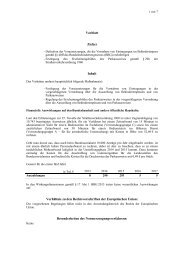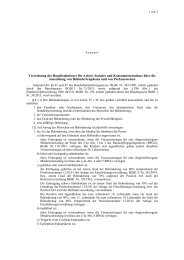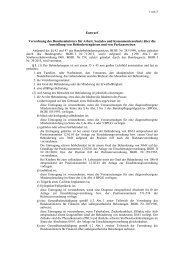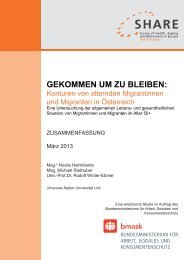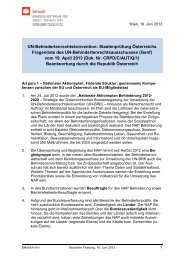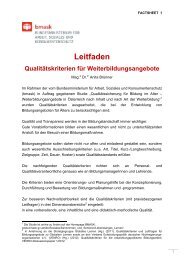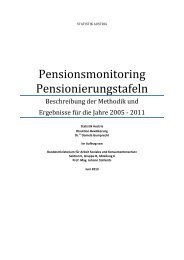Social Services of General Interest (SSGI)
Social Services of General Interest (SSGI)
Social Services of General Interest (SSGI)
Create successful ePaper yourself
Turn your PDF publications into a flip-book with our unique Google optimized e-Paper software.
Eilmansberger/Herzig<br />
fulfilment <strong>of</strong> the first three Altmark criteria and excludes over-compensation unless the<br />
amount exceeds what is necessary to cover the costs incurred, taking into account reasonable<br />
pr<strong>of</strong>it for discharging those obligations. Benchmarking is not required.<br />
In procedural terms the policy package makes distinctions. Under the exemption<br />
decision any public service compensation which is below certain threshold levels and meets<br />
the above criteria will not be subject to notification. This mainly applies to compensation <strong>of</strong><br />
less than EUR 30 million to undertakings with an annual turnover <strong>of</strong> less EUR 100 million, as<br />
well as to compensation to hospitals and social housing undertakings irrespective <strong>of</strong> the<br />
amounts involved. Any other compensation must be notified to the Commission but will be<br />
approved if it meets the Community framework criteria. Finally this Altmark package<br />
includes an amendment to the Transparency Directive which clarifies that companies<br />
receiving compensation and operating on both public service and other markets must have<br />
separate accounts for their different activities, so that the absence <strong>of</strong> over-compensation can<br />
be checked. 146<br />
4. Public procurement rules<br />
Public procurement rules can be <strong>of</strong> relevance to the social sector in two respects. For<br />
one thing, social entities may be considered public contracting bodies under certain<br />
circumstances. Their procurement system would then be subject to Community rules<br />
applicable to public procurement. For another thing, the social sector depends on public<br />
contracts in many instances. This raises the question about the circumstances which require<br />
such contracts to be subject to public procurement procedures and about any specificities to<br />
be observed.<br />
4.1. <strong>Social</strong> entities as public contracting bodies<br />
Beyond the narrower group <strong>of</strong> territorial entities, the personal scope <strong>of</strong> Austria’s<br />
Federal Procurement Act (BVergG 2006) also includes entities having a particularly close<br />
relationship with the State. This is supposed to ensure that all public entities whose<br />
procurement conduct could be guided by criteria other than economic criteria are subject to<br />
public procurement rules.<br />
§3(1)(2) BVergG 2006 is sedes materiae in this respect. Alongside the requirement <strong>of</strong><br />
partial legal capacity, this provision links the concept <strong>of</strong> public contracting body to two<br />
cumulative requirements: The entity must have been established for the specific purpose <strong>of</strong><br />
performing tasks in the general interest <strong>of</strong> a non-industrial or non-commercial nature. Plus<br />
there must be some form <strong>of</strong> government influence on the entity, either because the entity is<br />
for the most part financed from the public purse or because its activity or that <strong>of</strong> its executive<br />
bodies is subject to State supervision.<br />
4.1.1. Needs in the general interest, not having an industrial or commercial character<br />
The concept <strong>of</strong> needs in the general interest, not having an industrial or commercial<br />
character, is, to some extent, related to the concept <strong>of</strong> undertaking and to the distinction<br />
between economic and non-economic activity. Many <strong>of</strong> the criteria discussed above can be<br />
quoted in this context. However, there is no complete overlap between the two concepts. If an<br />
146 Commission Directive 2005/81/EC <strong>of</strong> 28 November 2005 amending Directive 80/723/EEC on the<br />
transparency <strong>of</strong> financial relations between Member States and public undertakings as well as on financial<br />
transparency within certain undertakings, OJ 2005 L 312/47.<br />
34


